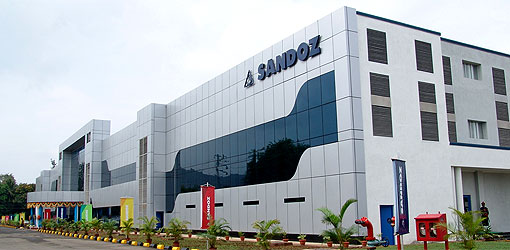Roche under pressure as second rituximab biosimilar filed in US

The pressure is mounting on Roche after Swiss rival Sandoz filed a US biosimilar of cancer and inflammatory diseases drug rituximab, closely behind a rival from Teva and Celltrion.
Rituxan (rituximab) is Roche’s biggest selling drug with sales of around $7.3 billion last year, and more than $3.9 billion of this revenue was based in the US.
But it went off patent in the US last year, and Teva and Celltrion filed their biosimilar competitor in July, meaning the cheaper near-copies could be on the market in the US towards the end of next year if the FDA gives them the green light.
The likelihood of another cheap competitor to rituximab places further pressure on Roche, which also faces biosimilar competition to its two other blockbuster drugs, Herceptin (trastuzumab) and Avastin (bevacizumab).
In an effort to counter the threat, Roche is launching a subcutaneous version of rituximab in the drug’s oncology indications.
But Roche is also struggling to find drugs that will replace sales lost to biosimilars - shares slumped this week after its cancer drug Zelboraf failed in a skin cancer trial.
There are also question marks over Roche's eye drug lampalizumab, which failed in a phase 3 study this week, putting billions of dollars in potential sales at risk.
This is adds to worries over cancer drug Tecentriq, which failed in a phase 3 trial designed to confirm a bladder cancer licence in May.
Rituxan is used to treat blood cancers including non-Hodgkins lymphoma (follicular lymphoma and diffuse large B-cell lymphoma) and chronic lymphocytic leukaemia, as well as immunological diseases such as rheumatoid arthritis.
Sandoz, which is the generics and biosimilars arm of Roche's Swiss rival Novartis, said it had filed its biosimilar using the FDA’s biosimilars pathway.
The filing is based on analytical, preclinical and clinical information. Clinical studies included a pharmacokinetic/pharmacodynamic trial in rheumatoid arthritis, ASSIST-RA, and a confirmatory safety and efficacy study in follicular lymphoma.
Sandoz has five biosimilars already on the market and plans to launch five more oncology and immunology biosimilars between 2017 and 2020.
Rituximab biosimilars from Sandoz and South Korea's Celltrion have already been approved in Europe.











